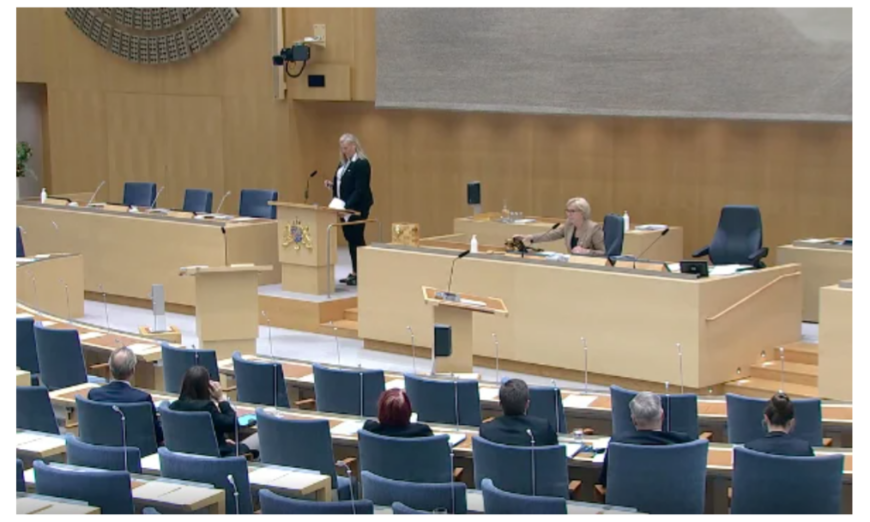Moderate MP Susanne Nordström speaks in the debate in parliament on the changes to Sweden’s freedom of association law. Photo. Swedish Parliament/Screenshot.
Scandinavia(n) Countries. Sweden’s parliament on Wednesday passed a constitutional amendment that will make it possible to pass tougher anti-terror laws, a key demand from Turkey to approve Stockholm’s Nato membership bid.
After Russia invaded Ukraine, Sweden and Finland abandoned their long-held policy of non-alignment and applied to join the military alliance.
But Turkey has blocked Sweden and Finland’s Nato membership applications, accusing Stockholm in particular of being a haven for “terrorists”.
The amendment, which passed with 278 votes in Sweden’s 349-seat parliament, makes it possible to introduce new laws to “limit freedom of association when it comes to associations that engage in or support terrorism.”
According to parliament’s standing committee on constitutional affairs, which recommended MPs approve the proposal, it will enable “wider criminalisation of participation in a terrorist organisation or a ban against terrorist organisation”.
Experts have said new legislation would make it easier to prosecute members of the Kurdistan Workers’ Party (PKK), blacklisted by Ankara and most of its Western allies. The change will enter into force on January 1.
During a visit to Ankara last week, Sweden’s new Prime Minister Ulf Kristersson described the constitutional amendment as a “big step”.
“Sweden will take big steps by the end of the year and early next year that will give Swedish legal authorities more muscles to fight terrorism”, he said at a joint press conference with Turkish President Recep Tayyip Erdogan.
In Sweden, a constitutional amendment must be approved by two separate parliaments, with a general election held in between.
The first vote passed under Sweden’s previous left-wing government in April, before Sweden’s formal decision to apply for Nato membership in mid May.
Only the country’s Left Party expressed opposition to the change.

